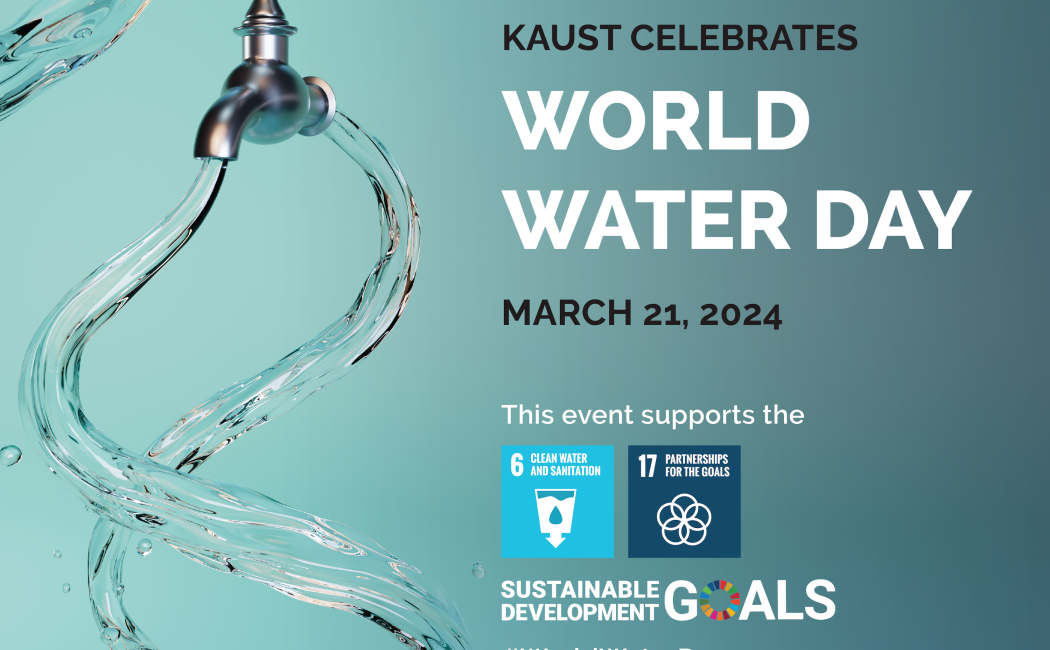


31 March, 2024

As climate change impacts increase and populations grow, there is an urgent need — within and between countries — to unite around protecting and conserving our most precious resource. To mark this year’s World Water Day, KAUST wishes to celebrate the importance of water and support the achievement of Sustainable Development Goal (SDG) 6: Clean water and sanitation for all by 2030. © 2024 KAUST; Xavier Pita.
On World Water Day, a panel of experts from King Abdullah University of Science and Technology (KAUST) explored the critical role of water in promoting global peace and environmental sustainability. Through a cross-disciplinary dialogue that included desalination technology, marine ecology, and integrated assessments, the panelists underscored the potential of water as a conduit for collaboration rather than conflict. Highlighting the interconnectedness of environmental issues, they shared insights on how technological advancements in desalination can alleviate water scarcity, the importance of sustainable groundwater management, and the protection of marine biodiversity to ensure ecosystem health. The experts collectively called for a unified approach that integrates education, technological innovation, ecological stewardship, and global policy efforts to enhance water security, mitigate climate change impacts, and support a sustainable, peaceful future.

This World Water Day conversation not only raised awareness about pressing environmental concerns but also promoted a shared responsibility towards water security as a foundation for global peace and sustainability.
Hosted at the King Abdullah University of Science and Technology (KAUST), the session started with a keynote presentation by Dr. Sofiane Soukane, a senior research scientist from the Water Desalination & Reuse Center. He highlighted the criticality of freshwater availability, emphasized the right to water as a fundamental human need, and provided a more nuanced definition of water scarcity, highlighting the regions most affected by water stress. The identified causes of water scarcity, including population growth, lack of integrated water management, expanding industrial demands, and climate change, set the stage for discussing potential solutions. Following the keynote, the stage was given to the future innovators, Grade 11 students from The KAUST School, who presented their innovative solutions to water scarcity. These presentations underscored the creativity and technological potential in addressing water challenges.
The event concluded with a poster session, offering a platform for 14 groups to share their ideas, fostering a deeper understanding and commitment to solving water scarcity.
